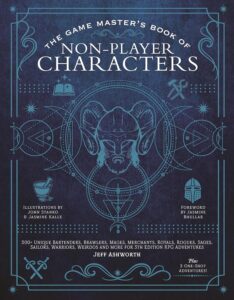In the vast and ever-evolving landscape of video games, Non-Player Characters (NPCs) have been a staple for decades. These digital denizens populate virtual worlds, offering quests, dispensing wisdom, or simply adding life to pixelated streets. But in recent years, the concept of NPCs has taken an unexpected leap from our screens into real-world discourse. Today, we’re diving deep into this phenomenon, exploring its origins, implications, and the controversy it has sparked in our increasingly digital society.

NPCs: The Digital Backbone
At its core, an NPC is any character in a game that isn’t controlled by a player. They serve several crucial roles:
- World-building: NPCs breathe life into digital realms, populating cities, forests, and dungeons. Without them, game worlds would feel empty and lifeless.
- Plot advancement: Many NPCs drive storylines forward, offering quests, revealing key information, or acting as antagonists.
- Resource provision: In many games, NPCs offer items, information, or services essential for player progression.
- Atmosphere: Background NPCs create a sense of bustling activity, making environments feel lived-in and realistic.
- Tutorial functions: NPCs often guide new players, explaining game mechanics and objectives.
Their scripted nature allows for predictable, often repetitive interactions. A shopkeeper might always greet you with the same line, or a quest-giver might repeat the same mission briefing. This predictability is key to understanding the metaphor’s leap into social commentary.
The Evolution of NPCs in Gaming
The concept of NPCs has evolved significantly since the early days of gaming. In text-based adventures, NPCs were simple interaction points, offering basic responses to player inputs. As games grew more complex, so did NPCs.
Modern games feature NPCs with sophisticated AI, daily routines, and complex dialogue trees. Games like “The Elder Scrolls” series or “Red Dead Redemption 2” showcase NPCs with individual schedules, relationships, and even the ability to remember player actions.
Despite these advancements, the core concept of NPCs as scripted, predictable entities remains. It’s this aspect that caught the attention of internet culture and sparked a controversial metaphor.
The Metaphor Takes Hold
Around 2016, internet communities, particularly those associated with political commentary, began using “NPC” as a pejorative term for people perceived as unthinking or programmed in their behavior and opinions. This usage suggests that certain individuals:
- Lack critical thinking skills
- Repeat popular phrases or opinions without understanding them
- React predictably to certain triggers or topics
- Seem to lack a sense of individuality or agency
The metaphor gained traction quickly, spreading through memes, social media posts, and online forums. Proponents argued that it accurately described a perceived phenomenon of people blindly following mainstream narratives or ideologies.
Controversy and Critique
The NPC metaphor is highly controversial, sparking heated debates across various platforms. Critics argue that:
- It dehumanizes people with differing viewpoints, potentially fostering a lack of empathy
- Oversimplifies complex social and political issues, reducing nuanced topics to black-and-white thinking
- Can be used to dismiss valid concerns or experiences, particularly those of marginalized groups
- Potentially promotes harmful stereotyping and furthers political polarization
- Ironically, the widespread use of the term itself could be seen as “NPC-like” behavior
Supporters of the metaphor claim it highlights genuine concerns about groupthink, media influence, and the potential for manipulation in modern society. They argue it’s a useful tool for encouraging critical thinking and questioning of mainstream narratives.
The Psychology Behind the Metaphor
The appeal of the NPC metaphor may lie in fundamental aspects of human psychology. We often seek to categorize and simplify our complex social world. The idea of NPCs in real life provides a simple framework for understanding behavior we find puzzling or frustrating.
Moreover, viewing others as NPCs might serve a self-esteem function, allowing individuals to see themselves as more independent thinkers or “main characters” in contrast to the “programmed” masses.
However, this viewpoint can lead to a dangerous form of othering, where we strip perceived opponents of their humanity and complexity.
Reflection: Are We All NPCs Sometimes?
While the metaphor is often wielded as an insult, it may offer a moment for self-reflection. In our information-saturated world, do we sometimes fall into patterns of unthinking reaction? Are there areas where we might benefit from more critical engagement with our own beliefs and behaviors?
Consider:
- How often do we share articles without reading beyond the headline?
- Do we sometimes use phrases or arguments we’ve heard without fully understanding them?
- Are there topics where our reactions are almost automatic, without considering nuance or context?
These questions don’t imply that strongly held beliefs are wrong, but rather encourage us to engage more deeply with our own thought processes.
The Impact on Public Discourse
The NPC metaphor, regardless of one’s opinion on its validity, has had a tangible impact on public discourse. It has:
- Intensified political polarization, providing a ready-made dismissal for opposing viewpoints
- Sparked discussions about critical thinking and media literacy
- Highlighted concerns about the impact of social media on individual thought and expression
- Raised questions about authenticity and individuality in the digital age
Conclusion: Beyond the Metaphor
The NPC phenomenon reveals much about our digital age – our fears of losing individuality, our struggle to navigate complex information landscapes, and the blurring lines between virtual and real-world paradigms.
As we move forward, perhaps the most valuable takeaway is not in labeling others, but in cultivating our own capacity for nuanced thought, empathy, and genuine engagement with the world around us. In doing so, we ensure that our own character development is anything but scripted.
Ultimately, the NPC metaphor serves as a mirror, reflecting our society’s anxieties and aspirations. By examining it critically, we can learn not just about our perception of others, but about ourselves and the complex, interconnected world we navigate daily.
In a world that increasingly resembles a vast, complex game, maybe the goal isn’t to be the main character, but to recognize the depth, value, and potential in every character we encounter – NPC or otherwise.
Hey there! We hope you love our fitness programs and the products we recommend. Just so you know, Symku Blog is reader-supported. When you buy through links on our site, we may earn an affiliate commission at no extra cost to you. It helps us keep the lights on. Thanks.
Disclaimer: The information provided in this discussion is for general informational and educational purposes only. It is not intended as medical or professional advice. Only a qualified health professional can determine what practices are suitable for your individual needs and abilities.

